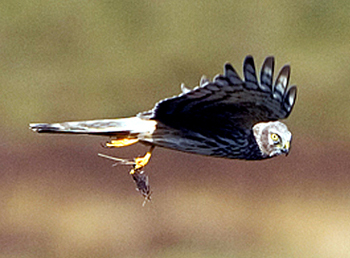Protected predator control licences under the spotlight

Following a lengthy campaign by the SGA, the Scottish Rural Property and Business Association, BASC Scotland and the Game & Wildlife Conservation Trust, Scottish Natural Heritage (SNH) issued new guidance in May, which was designed to make it easier for keepers in Scotland to apply for licences to control protected predators.
SNH clearly set out the predation evidence that must be provided prior to applying for a licence.
Despite fulfilling the necessary criteria, keepers have found it extremely difficult to obtain a licence, however.
?I have heard from fellow keepers that when they contact government offices for help, officials do not have a clue what to do,? Alex Hogg of the SGA said.
He added: ?They also question the legality of what keepers are suggesting. They do not seem prepared. The general feeling is that the government has been remiss in not spreading the guidance to all departments in preparation for this season.?
Mr Hogg explained he has now lost more than 30 poults to buzzard predation, but when he applied to his local government office for a licence, staff lacked urgency and did not seem to understand his request properly.
?Eventually, the Rural Directorate sent an inspector to assess my case. Buzzards were flying above every pheasant pen on the estate when he visited on 23 July. A week later, I received a response. Unbelievably, the Scottish government requested another two weeks to mull over my evidence.?
The Scottish government said it needed to look at the types of evidence and the degree of economic loss that would justify a licence and the wider ecological implications before establishing a policy framework.
?Why didn?t Government officials work this out in May when they issued the guidance? The SGA will be writing to them for an explanation,? said Mr Hogg.
Part-time Perthshire keeper Iain Semple has also experienced problems.
?I have applied to cull buzzards to protect lapwings and game birds. I lost 17% of my poults during the first 17 days of putting them to wood. This year, six pairs of lapwings produced 22 chicks but they have been gradually depleted by buzzards,? he said.
Mr Semple added: ?It is depressing to note that the Scottish government encouraged licence applications but does not seem to have allocated staff that are in a position to make swift decisions.?
Reacting to the concern of Scottish keepers, SNH?s Iain Ross said that delays are avoidable if keepers adhere to the guidance: ?SNH aims to provide a response to all licence requests within two weeks of receiving fully completed applications. Each application requires supporting evidence and SNH provides applicants with clear advice on the evidence they must provide to progress their application in good time. Any licence applications submitted without the required supporting evidence will naturally be delayed.?








